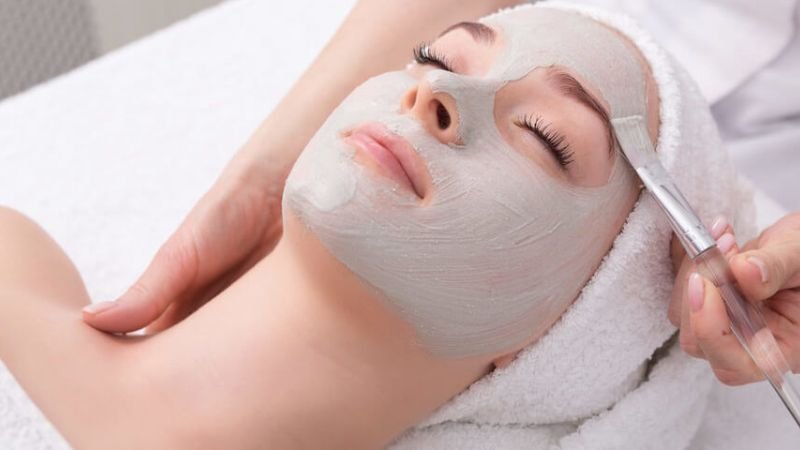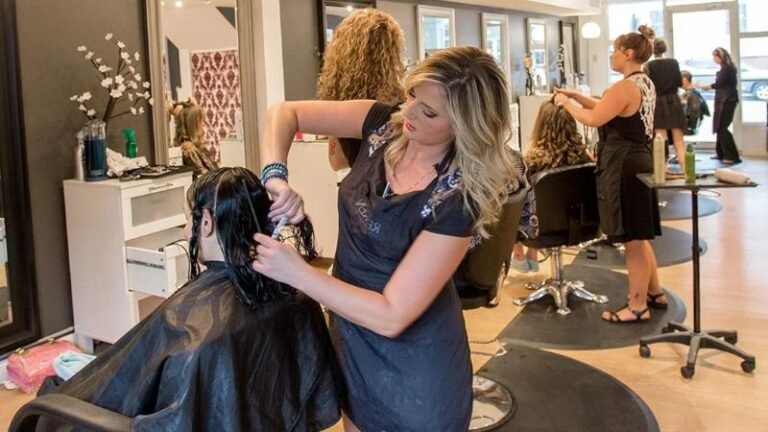Struggling with acne-prone skin can be a frustrating experience, often leading to a search for effective solutions. One highly recommended method is facial treatments, which offer a multitude of benefits specifically for those dealing with persistent acne. Facial treatments are designed to deeply cleanse, exfoliate, and nourish the skin, targeting the root causes of acne and promoting a clearer, healthier complexion.
This blog explores the top eight benefits of facial treatments for acne-prone skin, providing insights into how these treatments can help you achieve the radiant skin you’ve always desired. Whether you’re dealing with breakouts, inflammation, or acne scars, facial treatments can offer a customized approach to address your unique skin concerns, making them an essential part of your skincare regimen.
8 Benefits Of Facial Treatments For Acne-Prone Skin
Deep Cleansing
Deep cleansing is one of the primary benefits of facial treatments for acne-prone skin. Unlike regular at-home cleansing, professional facials involve the use of specialized products and techniques that penetrate deep into the skin’s pores to remove dirt, oil, and impurities. This thorough cleansing process helps to prevent clogged pores, which are a common cause of acne breakouts.
By eliminating the buildup of excess sebum and dead skin cells, deep cleansing facials can significantly reduce the occurrence of blackheads and whiteheads. Additionally, professional estheticians are trained to perform extractions safely and effectively, which can further help in clearing up existing acne without causing additional irritation or scarring. The result is a cleaner, fresher complexion that is less prone to acne breakouts.
Also Read:- Non-Surgical Anti-Aging Treatments
Exfoliation
Exfoliation is another critical component of facial treatments for acne-prone skin. Through the use of gentle exfoliants, facials help to remove the outer layer of dead skin cells, revealing the healthier, smoother skin underneath. This process not only enhances the skin’s texture and appearance but also promotes better absorption of skincare products. For acne-prone individuals, exfoliation is particularly beneficial as it helps to prevent clogged pores, a major contributor to acne development.
Moreover, regular exfoliation can aid in the reduction of acne scars and hyperpigmentation, leading to a more even skin tone over time. Professional facials often utilize chemical exfoliants like alpha hydroxy acids (AHAs) and beta hydroxy acids (BHAs), which are effective in treating acne while being gentle on the skin. By incorporating exfoliation into your facial routine, you can achieve a clearer, more radiant complexion.
Hydration
Hydration plays a crucial role in maintaining healthy, acne-free skin. Many people with acne-prone skin mistakenly believe that they need to dry out their skin to prevent breakouts, but this can actually worsen the condition. Facial treatments help to provide essential hydration, balancing the skin’s moisture levels without clogging pores. Hydrated skin is more resilient and better able to repair itself, reducing the likelihood of irritation and inflammation that can lead to acne.
Professional facials often include hydrating masks and serums that penetrate deep into the skin, ensuring long-lasting moisture retention. Proper hydration also helps to maintain the skin’s natural barrier function, protecting against environmental stressors and bacteria that can trigger acne. By keeping your skin well-hydrated, you can achieve a smoother, more supple complexion that is less prone to breakouts.
Reduced Inflammation
Inflammation is a common issue for those with acne-prone skin, often resulting in redness, swelling, and discomfort. Facial treatments can help to reduce inflammation through the use of soothing ingredients and techniques. Many professional facials incorporate anti-inflammatory ingredients such as aloe vera, chamomile, and green tea, which help to calm irritated skin and reduce redness.
Additionally, facial massage techniques used during treatments can improve blood circulation, promoting the delivery of oxygen and nutrients to the skin cells, which aids in the healing process. By addressing inflammation, facials can make acne lesions less noticeable and more manageable, leading to a clearer, calmer complexion. Regular facials that focus on reducing inflammation can also prevent future breakouts and support overall skin health.
Unclogged Pores
Clogged pores are a major contributor to acne, as they can trap oil, bacteria, and dead skin cells, leading to the formation of pimples and blackheads. Facial treatments are highly effective in unclogging pores through various methods, including steaming, exfoliation, and extractions. Steaming helps to open up the pores, making it easier to remove impurities and debris.
Exfoliation sloughs off dead skin cells that can clog pores, while extractions performed by a professional esthetician safely remove blackheads and whiteheads without causing damage to the skin. By keeping your pores clear, facial treatments can significantly reduce the occurrence of acne breakouts. Furthermore, the use of specialized masks and treatments during facials can help to tighten pores, making them less susceptible to clogging in the future.
Balanced Oil Production
One of the key benefits of facial treatments for acne-prone skin is the regulation of oil production. Overactive sebaceous glands can lead to an excess of oil on the skin’s surface, which can combine with dead skin cells and bacteria to clog pores and cause acne. Facial treatments can help to balance oil production through the use of specific ingredients and techniques that regulate sebum levels.
For example, facials often incorporate products containing salicylic acid, which helps to control oil and prevent clogged pores. Additionally, professional estheticians can tailor treatments to your skin’s unique needs, providing targeted solutions for oily or combination skin. By managing oil production, facials can help to prevent acne breakouts and promote a healthier, more balanced complexion.
Enhanced Product Absorption
Facial treatments significantly enhance the absorption of skincare products. Thorough cleansing and exfoliation prepare the skin to receive the active components in serums, masks, and moisturizers more readily. This increased absorption allows the products to penetrate deeper into the skin, delivering maximum benefits. For those with acne-prone skin, this means that treatments targeting acne can be more effective.
Salicylic acid, retinoids, and benzoyl peroxide are a few ingredients that can function more effectively to lessen outbreaks and stop acne in the future. Professional facials also often include specialized treatments like chemical peels or microdermabrasion, which further improve the skin’s ability to absorb and benefit from skincare products. By enhancing product absorption, facials ensure that your skincare routine delivers optimal results.
Stress Relief
Stress is a well-known trigger for acne, as it can lead to increased oil production and inflammation. Facial treatments offer a relaxing and stress-relieving experience, which can have a positive impact on your skin. The soothing environment, combined with gentle massage techniques, helps to reduce stress levels and promote a sense of well-being. Lower stress levels can result in fewer breakouts and improved skin health overall.
Additionally, the act of taking time out for self-care and prioritizing your skin health can have psychological benefits, boosting your confidence and making you feel more in control of your acne. Regular facials provide not only physical benefits for your skin but also contribute to your overall mental and emotional well-being, creating a holistic approach to managing acne-prone skin.
Also Read:- Amazing Benefits Of Facials For Your Skin
Conclusion
Facial treatments can be a game-changer for those with acne-prone skin, offering a comprehensive approach to achieving and maintaining clear skin. By addressing the underlying causes of acne and providing targeted care, these treatments can significantly improve skin health and appearance.
Incorporating regular facial treatments into your skincare routine can help you manage breakouts more effectively, reduce inflammation, and enhance your overall skin texture. Embrace the benefits of professional facial treatments and take a proactive step towards clearer, healthier skin today.
FAQs
How often should I get facial treatments for acne-prone skin?
It is recommended to get facial treatments every 4-6 weeks to maintain optimal skin health and manage acne effectively.
Can facial treatments help reduce acne scars?
Yes, certain facial treatments can help reduce the appearance of acne scars by promoting skin regeneration and improving overall skin texture.


